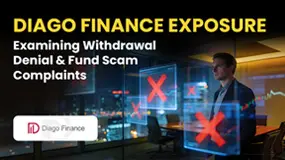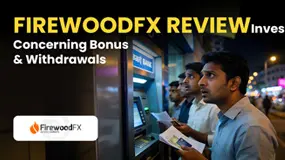Abstract:Trading and gambling can often attract the same person. There used to be a small test to determine if you are a trader or a gambler. If you accidentally make a trade without following your trading plan, and after incurring a loss, you feel like you made a mistake, what would you do?
Trading and gambling often attract the same person. There used to be a small test to determine if you are a trader or a gambler: If you make a trade without following your trading plan, and after incurring a loss, you feel like you made a mistake, what would you do?
If you are a trader, you would quickly exit the trade. The cost you paid is the price of making a mistake, and that's all. If you continue to hold onto the trade, hoping it will eventually become profitable or break even before you exit, then you are a gambler.
However, up to the present, the distinction between trading and gambling is not as clear as it once was.
Many people consider traders as gamblers because they believe they can achieve returns similar to Las Vegas roulette in various trading markets. Thus, they behave more like gamblers. The internet has made online trading very common, allowing people from various backgrounds, even those with no financial knowledge, to participate in trading.
This has led to many traders adopting a speculative mindset of “either earning substantial profits or losing everything,” blurring the line between trading and gambling.
However, for other traders who rely on strategies, build trading systems, follow investment principles, and diligently execute technical and fundamental analysis, trading is an entirely different realm from gambling.

At least, the following five points are the most distinct differences between the two:
Gamblers have nothing at stake, while traders own assets.
When you enter a casino like Macau or Genting, you should understand that nothing belongs to you there. You are merely participating in a game of probabilities, hoping to win some pocket money (ordinary players generally do not expect to get rich from the casino).
This is a clear difference from trading. In the financial markets, when you purchase an asset, it genuinely belongs to you. Whether you trade forex, commodities, or stocks, you are acquiring a tangible asset and intend to sell it at a higher price in the future. Even if the price falls, you still hold the asset; its value may just decrease.
Gambling is a game of probabilities, while trading requires strategies.
Many gamblers often discuss methods for successful gambling, but these methods lack practical feasibility. All forms of gambling are based on probabilities, merely hoping that the odds will favor them. The likelihood of losing in gambling is much higher than the risk of buying and selling assets, as this loss is inherently embedded in the gambling calculations.
In contrast, the financial markets involve relatively higher risks because the value of assets is influenced by various factors, such as supply and demand, market risk events, and more. Therefore, trading strategies are crucial in the financial markets, which cannot be compared to the methods of gambling. In financial markets, investors need to develop trading strategies based on in-depth analysis and judgment, rather than relying solely on probabilistic biases.
In summary, gambling is merely a game of luck with no actual strategies involved. In the financial markets, trading decisions require a foundation of comprehensive research and understanding to seek more robust investments amidst risks. Unlike gambling, financial trading demands cautious and meticulous planning and execution to pursue better investment outcomes.
Before engaging in trading, market research is necessary, whereas gambling does not require it.
Before engaging in financial trading, traders conduct thorough market research. They analyze market data and price fluctuations to identify potential future price trends.
In contrast, gambling does not require analysis because you cannot determine whether you will win. Many gamblers feel that the odds are always against them, especially in casinos where the house always aims to gain a numerical advantage.
Gambling is restricted by time, while trading is the opposite.
As a trader, your trading timeframe can be diverse. You can engage in short-term trading, making multiple trades within a day, or participate in long-term trading, holding financial assets for days, weeks, months, or even years. You have sufficient time to decide when to sell your assets before the contract expires. The profitability of trading may be proportional to time, as you can hold profitable assets for an extended period.
On the other hand, gambling is exactly the opposite; time is its enemy. Once the game is over, there is nothing else you can do.
Risk management is possible in trading, but not in gambling.
One of the most significant differences between trading and gambling lies in risk management. Risk management involves a series of actions aimed at mitigating or eliminating various uncertainties that arise in the decision-making process, making it especially crucial in trading.
Traders practice risk management in every trade, including setting stop-loss and take-profit orders and determining the maximum amount to invest in each trade. This helps control losses, protect capital, and ensure that trades are conducted within an acceptable risk range.
However, in gambling, calculating and implementing risk management is nearly impossible. Gamblers typically lack specific risk management strategies, and their outcomes often rely solely on luck and randomness. In contrast, traders rely on detailed analysis, strategy formulation, and risk management to increase the probability of successful trades. This notable difference in risk management sets trading apart from gambling.

Summary:
If you decide to trade in the financial markets, you need to take responsibility for your funds and each trade you make. Avoid making impulsive trading decisions and never underestimate the importance of learning and training in trading. By steering clear of many pitfalls in trading, you can differentiate trading from gambling and, like every successful trader, approach it with a disciplined and informed mindset.











